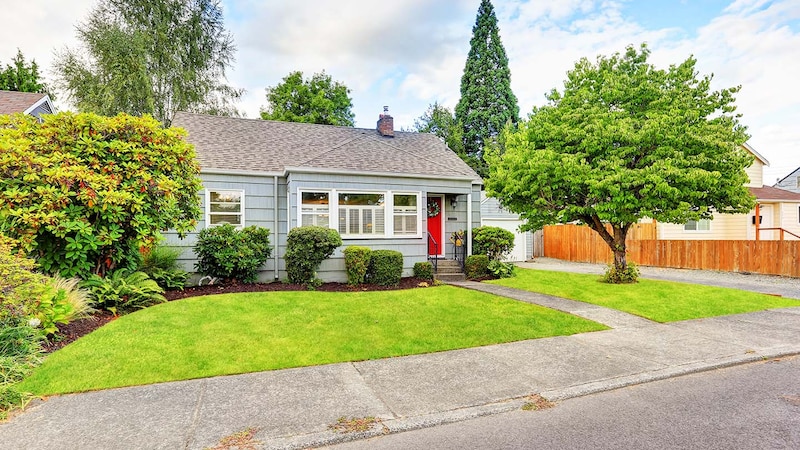Common questions about mortgages

Are you ready to buy a home, but not sure how it all works? Navigating the homebuying journey can be intimidating, so we're answering the most common questions to give you a head start on getting a mortgage with Chase.
1. Do I need to get preapproved for a mortgage?
There are a couple of reasons to get preapproved for a mortgage. First, you'll find out how much you can comfortably afford which can help when looking for homes. Second, having a preapproval before making an offer may give you an edge over other buyers. To get started, click here.
2. How much mortgage can I afford?
You'll need to take several things into account when determining how much you can comfortably afford. Consider how much you make, your monthly expenses, how much money you have saved, how much you can put towards a down payment, current interest rates and current home values.
You should also think about how much you feel comfortable paying each month for a home. Don't forget to include other expenses for things like cars, food, gas, groceries, entertainment and clothes. Write everything down and review your budget so you can see how much you bring in versus how much you spend each month. Our Affordability Calculator can help you get an idea of how much you can afford.
3. What are the current mortgage rates?
Mortgage interest rates are always changing, so it's important to check current rates and see what you qualify for prior to purchasing a home. It's also a good idea to get preapproved for a mortgage and lock in that rate so you won't be impacted if rates go up. There is a fee for rate locks, and it varies by lender and depends on how long you want to lock the rate. Most rate locks range from 30 to 90 days.
4. What is a debt-to-income ratio?
Your debt-to-income ratio compares your gross monthly income with how much you owe each month (e.g. your estimated mortgage, credit cards, student loans and car loans). To get this ratio, divide your monthly expenses by your gross monthly income. This number turns into a percentage and becomes your debt-to-income ratio. Lenders typically want the number to be below 43%, but some programs allow it to be higher. Your lender can help you determine your debt-to-income ratio and review which loan programs you may qualify for.
5. What credit score do I need?
Your credit score plays an important role in determining whether or not you qualify for a loan, as well as the type of loan you may qualify for and the interest rate. Lenders use your credit score to determine risk. While higher credit scores usually mean better rates, you may still qualify for a mortgage loan even if your score is less than perfect.
Before you apply for a mortgage, check your credit report and make sure it is accurate. If you find any issues, take care of them immediately, as this can take a while. Contact the credit bureaus and provide any information they require so you can clean up your report and improve your credit score. Make sure to pay all of your bills on time as well.
6. What is a down payment?
When purchasing a home and getting a loan, the down payment is the money you pay upfront. This amount goes toward the total principal which lowers the amount of your mortgage. Putting a higher amount down may lower your interest rate and build equity in your home faster.
7. How much of a down payment do I need?
Down payment amounts vary depending on the type of loan. For example, if you're going with a conventional loan the down payment is 20%. However, you can put less down, but you may pay private mortgage insurance (PMI).
Some loan types may require less of a down payment, such as only a 3% to 5% down payment. Federal Housing Administration (FHA) loans require a 3.5% down payment, while the U.S. Department of Veterans Affairs (VA) loans may not require any money down.
8. What is PMI – private mortgage insurance?
PMI is for conventional loans and covers the lender if you stop paying your mortgage and default on your loan. The yearly cost of PMI is about 1% of your outstanding loan balance and is added to your monthly mortgage payment. You can request to have PMI eliminated once your outstanding balance reaches 80% of the original loan amount.
9. What are the documents needed to apply for a mortgage?
Lenders require several documents when applying for a mortgage. Have your pay stubs, W-2s, tax returns, bank statements, investment account statements and brokerage account information ready. Your lender will also provide a list of required documents so you can gather them ahead of time. Be sure to send everything in a timely manner to help keep things moving.
10. What types of mortgages are available?
There are a number of types of mortgages available for home buyers, but the two most common types are fixed-rate and adjustable-rate.
With a fixed–rate mortgage, you'll always know what your monthly principal and interest payments will be. You can also lower your monthly payments by spreading them out over a long period of time. You can choose a 10–, 15–, 20–, 25– or 30–year term, and low down payment options may be available.
Adjustable-Rate Mortgages (ARMs) offer lower early payments than a fixed–rate mortgage. If you're planning on owning your home for a short period of time, an ARM may be a good option. Your interest rate stays the same for 5, 7 or 10 years (based on the chosen product), and becomes variable for the remaining loan term, adjusting every year thereafter. For example, a 5/6 ARM would have the same interest rate for the first five years and then convert to an adjustable rate, with semi-annual adjustments for the remaining term of the loan. You can choose a 5/6, 7/6 or 10/1 ARMs with a 30–year term.
When deciding the best mortgage option, take a look at your budget and determine how much you can pay each month. Your Chase Home Lending Advisor can also help you with any questions you may have.
11. What is an FHA mortgage?
An FHA (Federal Housing Administration) Mortgage is a loan insured by the government. FHA mortgages offer down payments as low as 3.5%, which can include the use of gift funds. You don't need to meet low-to-moderate income requirements to qualify.
12. What Is a VA loan?
If you're a veteran or active-duty servicemember, or a member of the Guard or Reserve, you may be eligible for a VA loan. However, you still need to meet income and credit requirements. VA loans have low or no down payment options available and don't have a mortgage insurance requirement, resulting in lower monthly payments compared to other options.
13. How fast can I get a mortgage?
It typically takes 30 to 60 days to get a mortgage, though it can take longer. Having all your documents and information ready and working closely with a mortgage lender will help move things along more quickly.
14. What are the tax benefits of a mortgage?
There may be tax benefits associated with owning a home, such as deductions for mortgage interest payments, real estate taxes and mortgage points. Tax credits may also be available for low-to-moderate income homeowners. Check with your tax advisor for a full list of deductions.
Getting a mortgage doesn't have to be scary. By doing your research and working with your lender, you'll be in your new home in no time.



